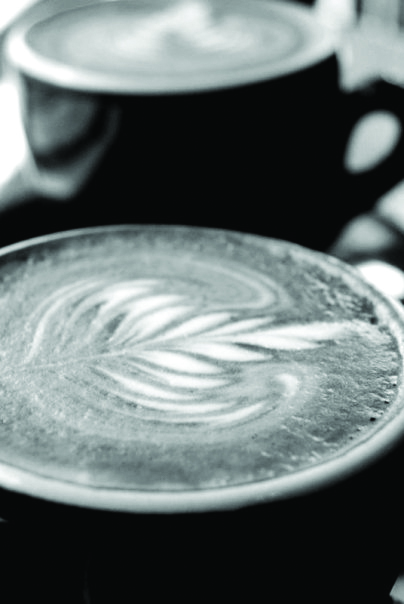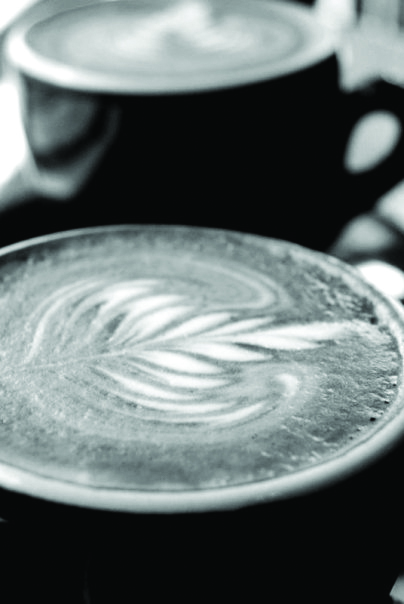 A cup of tea was the nation’s favourite tipple until we ditched the tea bag in favour of a stronger brew. But is our love of lattes a luxury we’re willing to give up? Catriona Matheson asks if the nation’s once beloved coffee culture is starting to lose its kick.
A cup of tea was the nation’s favourite tipple until we ditched the tea bag in favour of a stronger brew. But is our love of lattes a luxury we’re willing to give up? Catriona Matheson asks if the nation’s once beloved coffee culture is starting to lose its kick.
Last week, I arranged to meet a friend in Glasgow city centre who suggested we meet in Starbucks. My friend isn’t from Glasgow in fact she’d never been before and yet was able to suggest a possible meeting point. My dilemma was whether to point her in the direction of the Starbucks on Sauchiehall Street, in Princes Square, at Nelson Mandela Place, in Central Station, at Royal Exchange Square, on Renfield Street, in Buchanan Galleries or the Starbucks on Buchanan Street (either the one inside, or along from, Borders book shop). There are not many companies that are so ubiquitous their existence is an expectation. However I realised my predicament of choosing a coffee shop was largely irrelevant considering they all delivered identical café experiences.
Indeed, it is the commonality between Starbucks’ stores which has turned the company into a global phenomenon. Recently however, as we’ve been limiting our spending habits, the coffee chain has suffered. At the end of last year, the company announced that its custom had fallen for the first time since it was founded in 1971, leading to a painful drop in its profits and the closure of 1,000 stores. Has Starbucks hit the wall running?
 The fact that the UK’s new biggest money-saving cliché is kicking our daily latte habit speaks volumes about how café culture has infiltrated the British psyche. We still may be some way behind our continental cousins, yet lattes have become synonymous with city life and the take-away coffee cup has become an every-day accessory. But café culture is not just about the coffee; it’s a lifestyle and one we adopted in full swing. With the aid of Starbucks, the UK embraced an Americanised European café culture creating societal evolution.
The fact that the UK’s new biggest money-saving cliché is kicking our daily latte habit speaks volumes about how café culture has infiltrated the British psyche. We still may be some way behind our continental cousins, yet lattes have become synonymous with city life and the take-away coffee cup has become an every-day accessory. But café culture is not just about the coffee; it’s a lifestyle and one we adopted in full swing. With the aid of Starbucks, the UK embraced an Americanised European café culture creating societal evolution.
In an age when we can buy a TV in a supermarket and shop from the comfort of our living room, it comes as no surprise that as consumers, we have an increasing desire for more choice when it comes to our caffeine intake. The request is no longer ‘black’ or ‘white’ but a rather unashamed, ‘tall, extra hot, skinny cappuccino with a shot of caramel syrup, please.’ Observers have also looked towards American sit-coms as having a massive impact on the cultural aspirations of our generation and though we may not like to admit it, it is likely our lifestyle has been influenced by television from across the pond. Perhaps a more conceivable reason for the rise of British café culture however is that the dawn of the coffee shop in the UK was an innovation. Polished floors, brown leather seats, ambient music and skinny muffins provided a much welcomed alternative to greasy spoon cafes and smoky pubs. So café culture took off, and along with it several new coffee chains trying to cash in on the success.
While we may have adopted a trend from Europe with an American twist, it would seem that our café culture here in the UK is different to that in mainland Europe and the U.S. According to Professor Jonathon Morris, a historian who specialises in cultural consumption, the way we use coffee shops is unique. He explains coffee shops in the UK are as much about selling time as they are about coffee. Indeed, you can spend a couple of hours in a coffee shop without a member of staff looking to throw you out, something that wouldn’t have happened 10 years ago in a British café. Most of us use a coffee shop as a social space to relax or work, to meet friends or to conduct meetings. The rise in working ‘from home’ in the advent of the laptop computer and wireless internet, the trend for mothers to meet outside the home, and for breaks to be taken outside the workplace, have all contributed to the rise of British café culture.
Starbucks’ store closures however reflect a wider decline in coffee sales with companies such as Coffee Republic and Beascene also suffering from a drop in profits. So as we tighten our purse strings, is British café culture in demise? Clare Benfield, Editor of Café Culture Magazine seems to think not. She told GUM that while some outlets may suffer, café culture will survive the recession. Her point being, ‘At the end of the day, in tough times people still like their little pick-me-up treats i.e. a coffee and cake.’ Maybe Starbucks haven’t hit the wall running, but have just taken a nasty trip along the way.

